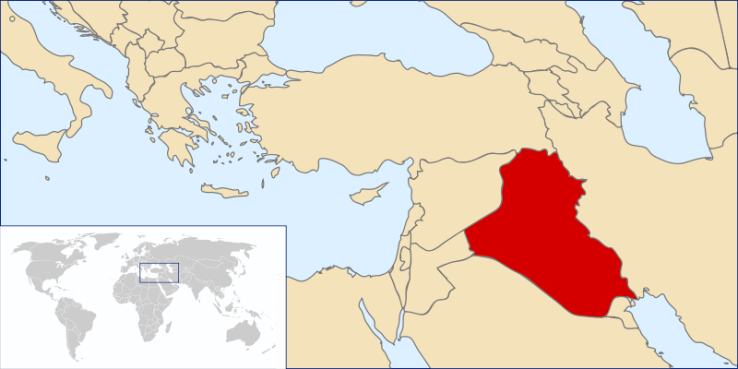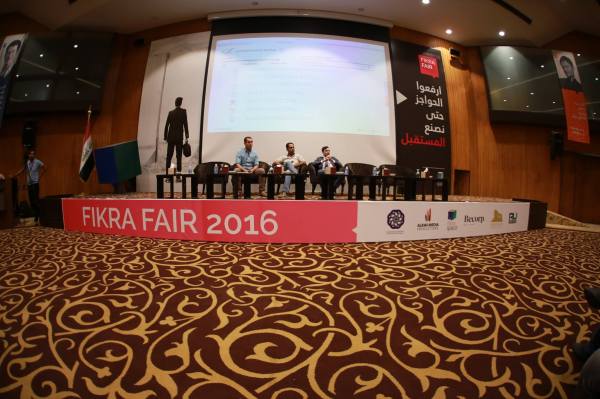This weekend in Baghdad, tech entrepreneurs and local government officials gathered at the Fikra Fair to network, demo their apps and show the world that Iraq has more to offer than oil.
According to the Human Rights Watch, challenging realities of daily life for many people in Iraq include sky-high food prices, cash shortages, a lack of communications infrastructure, and restricted access to healthcare or education especially for women and girls.
Armed conflict between Islamic State, Kurdish, Iraqi government, militia and international forces have destabilized and displaced 3.2 million Iraqis, and interrupted the education of 3 million children there since 2014, HRW reports.
Humanitarian needs are burgeoning and the conflict is ongoing. Clearly, Iraq’s entrepreneurs face hardships well beyond those of their tech-touting counterparts from Silicon Valley to Beijing.
TechCrunch interviewed one of the Fikra Fair’s organizers, Ibrahim H. Al-Zararee, about what’s motivating a new generation of Iraqis to start tech companies, despite the challenges. Edited excerpts follow below.

Iraq on the world map by Rei Artur.
Why did you start this conference?
The fair is an attempt to put Baghdad back on the global map for innovation.
We have been trying to change this stereotype that Iraq is a country of war and nothing good can come from it. By bringing almost all of the startups here together to showcase what they have built, we hope maybe in the near future they can become known not only nationally, but internationally as well.
Who are the tech startups that showed up for the first Fikra Fair?
Three startups here that stood out in my mind were Mishwar, BotLab and EARV Labs.
Mishwar is an online service where you can order your groceries, and pay either on delivery or with one of the e-payment solutions we have in our country.
BotLab developed a bot that you can integrate with your store on Facebook. It will answer customers’ questions. This is one of the first bots I have seen in Arabic and I think it has a promising future if marketed well.
Then there was EARV Labs…The team is developing applications that take advantage of augmented reality. Their first attempt is an AR menu that lets you see all the selections in front of you on the screen, and when you click on an item, get more details about it.
Who do you think are the most admired tech companies in Iraq?
Google and Apple… The only local equivalent to a big, international company we have now is Miswag, which is very similar to Amazon. You can buy what you want online, and have it delivered to your house. The company is always mentioned when we want to motivate people about starting their own business. And it is considered one of the most successful startups in Iraq.
As they are starting out, how do entrepreneurs support themselves in Iraq?
Due to the security situation here, we don’t have venture capitalists or other people who are willing to risk and finance our startups.
The community is trying its best to get financial support, but founders are always getting the same answer which is we can’t work with you because of the security concerns.
Most of the startups in Iraq are now self-funded. This is a big problem because they can’t scale their business when they have to spend most of their revenue on developing their technology or keeping their business going. Their work can barely support them financially.
What are some other unique challenges tech startups face in Iraq?
As I learned working on Startup Weekend in Baghdad for the past two years, and meeting many entrepreneurs here, one big challenge that most tech startups face is the skills gap.
Iraqis before 2003 didn’t have access to the internet. And our education system still is not very reliable, so most of the graduates—even if they studied computer science, or any field related to tech— don’t have the appropriate skills to pursue a career in tech.
The tech community in Iraq, including our business Fikra Space, is trying to change this by holding bootcamps for web development, graphic design, and mobile app development. But this is not enough. The gap is simply huge.
If our education system doesn’t change, then tech startups have a big problem ongoing and I expect they might have to leave the country or outsource their work to foreign developers and designers as they grow.
What impact do you want to have here?
We started the Fikra Fair in hopes that when the world sees that the startup community in Iraq is growing, they will get to know this community and help it to grow even bigger.
The effect we are trying to achieve, as well, is to try and push our government to invest in youth and their projects because our economy is failing. If we rely only on oil then it will only get worse.
